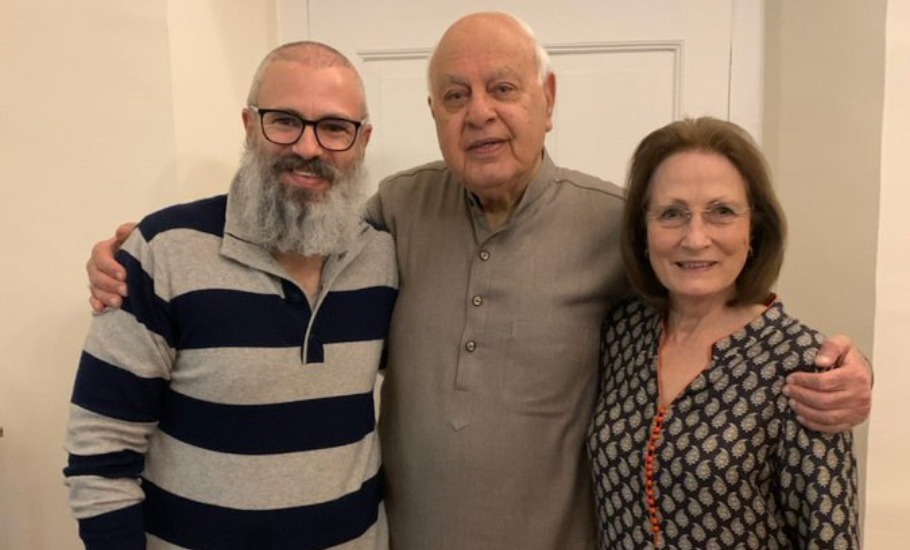
Omar a free man but does he have the heft to challenge Modi
On his release, the National Conference leader said despite being placed under detention, he was still lucky compared to ‘thousands of Kashmiri political prisoners’ who were languishing in various jails across India.

After spending 232 days at Kashmir’s Hari Niwas in detention, Omar Abdullah is now a ‘free’ man.
On his release, the National Conference leader said despite being placed under detention, he was still lucky compared to ‘thousands of Kashmiri political prisoners’ who were languishing in various jails across India. He sought their unconditional release, including that of his political rival and former Chief Minister Mehbooba Mufti.
Besides this, he demanded the immediate restoration of 4G internet services in the valley. A few days ago, his father, Farooq Abdullah, too had demanded restoration of internet in a letter to Prime Minister Narendra Modi.
This prompted some observers in Kashmir to wonder whether the mainstream politicians had been reduced to a level where they are just demanding restoration of 4G internet.
Related news: Omar Abdullah released after nearly 8 months of detention
Have the Kashmiri politicians, committed to electoral politics, realised that it is perhaps unwise or impractical to confront the BJP at this juncture? Have they made a compromise? Or, are they playing a waiting game, only to strike as and when an opportunity presents itself?
While Omar’s followers and supporters are jubilant over his release, his detractors, however, say that both the father and son have perhaps reconciled themselves to the new political reality, post August 5, 2019.
“I think both Farooq Abdullah and Omar Abdullah have compromised. There seems to be some understanding between New Delhi and the National Conference (NC),” said Riyaz Ahmad, a political analyst.
The question is whether it would have been wise on part of Omar Abdullah to take a strident stand against the Centre soon after his release. In such case, he may well run the risk of going back to the detention centre.
There is a growing realisation that under the present circumstances there is little that the already powerless Unionist politicians in Kashmir can do and achieve while remaining part of the electoral democracy.
Related news: SC seeks response from Centre, J-K admn on Omar Abdullah’s release
The key question is whether the mainstream politicians are worried about the danger of further political disempowerment of Kashmiri Muslims. Among the many anxieties in Kashmir, the prominent one is that the BJP is planning to change the political centrality of the Valley and shift the focus to Jammu after its delimitation plan is executed on the ground. And then, the demographic threat in Kashmir may well become a reality.
“Yes, that danger is there since August last year,” Siddiq Wahid, a Srinagar-based historian, academic and former Vice Chancellor of the Islamic University of Science and Technology (IUST) in south Kashmir, told The Federal. According to Dr. Wahid, the politicians in Kashmir across the political and ideological spectrums ‘need to understand the political situation’ and accordingly ‘reinvent themselves.’ The big question, in his view, is ‘where do we go from here?’
It can be argued that given the current lockdown due to coronavirus pandemic, Omar Abdullah’s release was inevitable. Another view is that New Delhi was under mounting international pressure to release him. Moreover, the Supreme Court had on March 17 asked the Centre whether it had any plans to release the Kashmiri politician.
“If you are releasing Omar Abdullah, release him soon or we will hear his sister’s plea against his detention on merit,” the apex court had said.
The SC was hearing a petition by Omar Abdullah’s sister Sara Abdullah Pilot. She had sought her brother’s release while challenging his detention under the stringent Public Safety Act (PSA) of 1978.
Related news: Farooq Abdullah visits detained Mehbooba Mufti’s residence
Now that he has been set free, whether due to international pressure or the petition in the Supreme Court, the question now is what will be Omar’s next move.
Speaking to The Federal, one of Kashmir’s leading political scientists Professor Gull Wani said: “The Indian state is in no way going to yield anything at this moment. Under the present circumstances, the mainstream Kashmiri politicians believe that restoration of statehood and guaranteeing domicile rights for Jammu and Kashmir are achievable goals.”
Also, with the sudden emergence of People’s Democratic Party (PDP) deserter and business tycoon Altaf Bukhari on Kashmir’s political landscape, the formidable regional parties like the NC and PDP would perhaps want to buy time and analyse the situation carefully until full restoration of political freedom.
Sporting a longish salt-and-pepper beard, Omar, during his interaction with the media, repeatedly referred to Jammu and Kashmir as a ‘State’ and said that he wanted to say a lot about the taking away of Jammu and Kashmir’s semi-autonomous status and statehood but due to the COVID-19 pandemic he would keep that for another day.
Related news: Azad meets Farooq Abdullah, calls for restoration of democracy in J&K
“For now, fighting the pandemic is a battle of life and death,” he said. He advised people to stay indoors, maintain social distancing and follow the advisories.
Omar did say that he was walking into a different world and that ‘a lot has happened’ since August last year. He talked about the sufferings of common Kashmiris due to the prolonged lockdown and information blockade for nearly eight months now.
The NC leader mentioned how big and small businesses suffered huge losses and how the hoteliers, tourism players, daily wagers and people from all walks of life struggled to make both ends meet.
The question is whether there is any strength left in the NC cadre to fight for restoring what was lost due to abrogation of Article 370 or for safeguarding whatever that is left now. And, whether the party can afford to take a tough stand under the present circumstances.

